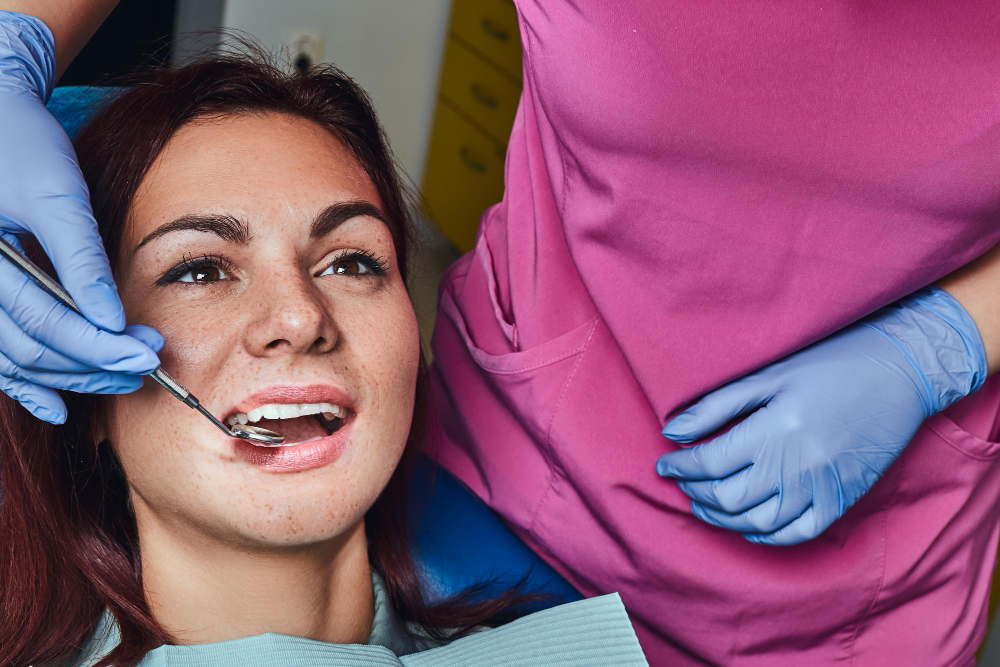
Pregnancy is
an exciting journey filled with countless changes—both expected and surprising.
One of the most overlooked aspects of prenatal health is oral care. Many
moms-to-be wonder whether visiting the dentist during pregnancy is safe or
whether certain treatments should be postponed. The good news is that dental
care is not only safe during pregnancy but also highly recommended.
In this
blog, we break down what you need to know about dental treatments while
expecting.
Why Dental Health Matters During Pregnancy
Hormonal
changes during pregnancy can increase the risk of oral problems such as:
- Gingivitis: Swollen, tender gums caused by
increased blood flow.
- Periodontal disease: Untreated gingivitis can
progress into more severe gum disease.
- Pregnancy tumors: Benign growths on the gums
caused by excess plaque.
Poor oral
health has also been linked to preterm birth and low birth weight,
making routine dental care essential for both mother and baby.
Are Dental Treatments Safe During Pregnancy?
1. Routine Dental Checkups and Cleanings
Absolutely
safe. Dentists encourage regular cleanings and exams during pregnancy to
prevent gum issues before they become more serious.
2. X-Rays
Modern dental
X-rays are generally considered safe during pregnancy—especially with abdominal
shielding—but many dentists prefer to postpone non-emergency X-rays until
after delivery. Emergency X-rays, however, should not be avoided if they are
essential for treatment.
3. Fillings and Restorative Treatments
Treatments
for cavities, such as fillings, are safe and often necessary. Untreated dental
decay can lead to infection, which is far more harmful than the treatment
itself.
4. Local Anesthesia
Common local
anesthetics like lidocaine are considered safe when used in appropriate doses.
They help prevent stress and discomfort during procedures.
5. Antibiotics and Medications
Certain
antibiotics—such as penicillin, amoxicillin, and clindamycin—are safe to
use during pregnancy. Your dentist will avoid any medications known to be
harmful to the baby.
Best Time for Dental Treatment: The Second Trimester
While you
can visit the dentist at any time during pregnancy, the second trimester
(weeks 13–27) is generally the most comfortable time for dental procedures.
- Morning sickness typically
improves
- Lying back in the chair is
easier than in the third trimester
- The risk of early pregnancy
complications is lower
Treatments to Postpone Until After Delivery
Some
elective or cosmetic procedures are best delayed, such as:
- Teeth whitening
- Extensive cosmetic dentistry
- Non-urgent surgeries
These
treatments can wait until after childbirth and breastfeeding if you prefer.
Tips for Maintaining Good Oral Health During Pregnancy
- Brush teeth twice a day with
fluoride toothpaste
- Floss daily to prevent plaque
buildup
- Rinse with a non-alcoholic
mouthwash
- Drink plenty of water
- Follow a balanced, low-sugar
diet
- Don’t skip dental appointments
If you
experience persistent gum bleeding, tooth pain, or swelling, consult your
dentist right away.
Conclusion
Dental care
during pregnancy is not only safe but vital for your overall health and
your baby's well-being. By staying proactive and visiting your dentist
regularly, you can prevent potential issues and ensure a healthy smile
throughout your pregnancy journey.
